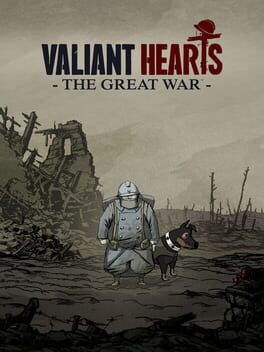PL4Y3R
4 reviews liked by PL4Y3R
Citizen Sleeper
2022
this game is beautiful. not just in the character art, which is a cyberpunk rainbow of scratched plastic, worn servos, glowing screens, queer faces, and baggy overalls. the world it presents is beautiful, in its own way. surrounded by decay and despair on a crumbling space station, you must try to build a life for yourself before your own mechanical body falls apart. maybe while it's falling apart. you're going to make trade-offs. you can't help everyone. i've just completed one ending, and i'm wracked with guilt over what i left unfinished. there is so much more i have yet to see. simple tabletop mechanics, moody synth music, and a concise UI make this game streamlined and easy to get immersed in. i've been consumed by it over the last two days, and i have a feeling i'll be returning soon enough.
wake up, Sleeper.
wake up, Sleeper.
Played this in it's entirety over the course of two nights (which, can I just say, what an excellent length for a game like this!) with a friend who I now realise may be the world number one Lucas Pope fan internationally. He spent the entire game geeking out, trying (and occasionally failing) to restrain himself from spoiling crucial parts that he was excited about. It was a ridiculous but somehow fitting environment for a mystery game. The game itself is a thunderous accumulation of aesthetic force, in which Pope wrangles every single possible element of dramatic tension out of a relatively flimsy plot, utilising nothing but stationary (and colourless) 3D environments, silent film-style title cards, and a seemingly impossibly skilled array of voice actors to do so. The music is the real secret (by which I mean not even vaguely secret) weapon, combined with perfect editing rhythms to position the player within their very own DVD boxset detective drama. I called the plot here flimsy because it is. But the most frustrating element of the game (and the biggest problem, including the inevitably repetitive nature of the gameplay / obvious total lack of replay value) is probably that this only reveals itself to be the case right at the end. Because information is revealed in such an invigorating and disjointed manner throughout, the actual story of events as you discover them is really compelling. But the conclusion can't help but leave a little to be desired. Nevertheless, this is probably the single best detective game ever made, and the only one I've ever played in which 'detecting' is rendered the deeply complex logic puzzle it should be, as opposed to a dialogue tree with obviously wrong answers.
Cocoon
2023
I'll start by saying that Valiant Hearts is a bold choice by Ubisoft; trying to translate a narrative regarding the horrors of war and how both sides ultimately don't feel that different when caught in the middle of warfare, into a comic book animated puzzle platformer, is something that most AAA developers would not even dare and something that I feel Ubisoft would not consider, especially one that focuses on the effects of war upon its people rather than as yet another global phenomenon between powers. When Valiant Hearts needs to strike fear and gloom into your heart, it is not afraid to pull its punches; wandering around the ruins of Ypres while undergoing a chlorine gas attack or digging through the ruins of burning farmhouses imparts these feelings quite effectively. I do think that Valiant Hearts has some trouble maintaining this melancholy tone in certain sections near the middle, however; certain action sequences (such as driving the tank and shooting down planes with video game sound effects) as well as the main boss fight almost feel like they belong in a MCU superhero action film rather than a game trying to demonstrate the injustices of war. I'd also say that Valiant Hearts could have focused a bit more on the puzzle platforming while rescuing civilians/soldiers and less on scrolling sections (what I refer to as the "Triple R," or "Run Right Rapidly") and stealth sections that felt rather excessive at times. Regardless, I applaud the artistic decision to even market a game of this flavor, and how for the most part it does a great job focusing less on combat and more on educating those who play it through its stark aesthetics and tidbits of WW1 history through the diary entries and relics collected as you progress through the game. Valiant Hearts doesn't always stick the landing and definitely has lots of room for improvement, but I'll say for sure that the ending has left a mark on me, and hopefully perhaps someday, Ubisoft decides to return to experimentation and makes another game of this depth.



